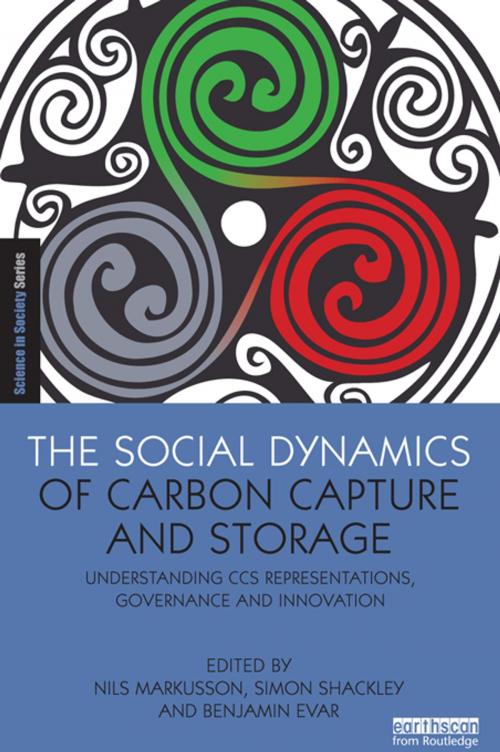The Social Dynamics of Carbon Capture and Storage
Understanding CCS Representations, Governance and Innovation
Business & Finance, Industries & Professions, Industries| Author: | ISBN: | 9781136311246 | |
| Publisher: | Taylor and Francis | Publication: | May 4, 2012 |
| Imprint: | Routledge | Language: | English |
| Author: | |
| ISBN: | 9781136311246 |
| Publisher: | Taylor and Francis |
| Publication: | May 4, 2012 |
| Imprint: | Routledge |
| Language: | English |
Carbon capture and storage (CCS) has emerged rapidly as a crucial technological option for decarbonising electricity supply and mitigating climate change. Great hopes are being pinned on this new technology but it is also facing growing scepticism and criticism. This book is the first to bring together the full range of social and policy issues surrounding CCS shedding new light on this potentially vital technology and its future. The book covers many crucial topics including the roles and positions that different publics, NGOs, industry, political parties and media are taking up; the way CCS is organised, supported and regulated; how CCS is being debated and judged; how innovation, demonstration and learning are occurring and being conceptualised and promoted; and the role of CCS in the transition to a low carbon energy future. The authors draw on a variety of approaches, concepts, methods and themes and provide a new understanding of innovation in the energy and climate change fields. It tackles the many issues in a way that speaks to those concerned not only to understand these developments, but to those who are involved in the scientific and technological work itself, as well as those charged with evaluating and making decisions relevant to the future of the technology.
Carbon capture and storage (CCS) has emerged rapidly as a crucial technological option for decarbonising electricity supply and mitigating climate change. Great hopes are being pinned on this new technology but it is also facing growing scepticism and criticism. This book is the first to bring together the full range of social and policy issues surrounding CCS shedding new light on this potentially vital technology and its future. The book covers many crucial topics including the roles and positions that different publics, NGOs, industry, political parties and media are taking up; the way CCS is organised, supported and regulated; how CCS is being debated and judged; how innovation, demonstration and learning are occurring and being conceptualised and promoted; and the role of CCS in the transition to a low carbon energy future. The authors draw on a variety of approaches, concepts, methods and themes and provide a new understanding of innovation in the energy and climate change fields. It tackles the many issues in a way that speaks to those concerned not only to understand these developments, but to those who are involved in the scientific and technological work itself, as well as those charged with evaluating and making decisions relevant to the future of the technology.















